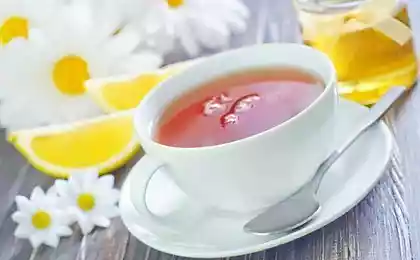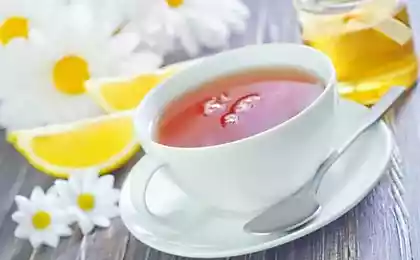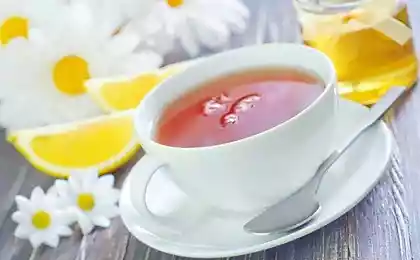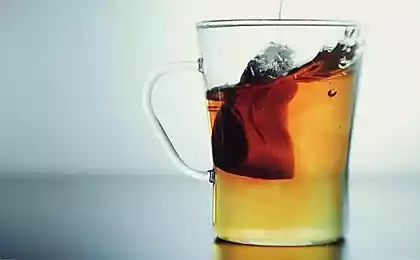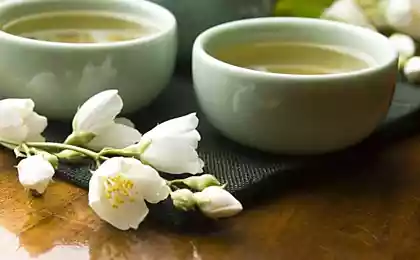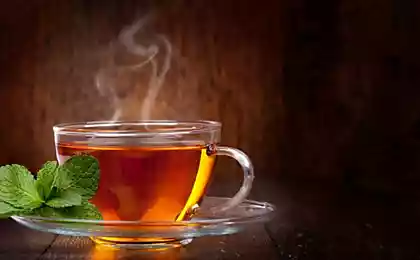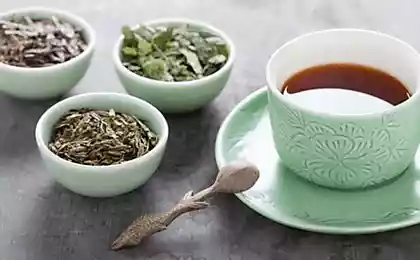994
10 facts about tea
Given that tea is one of the most popular drinks in the world, it is likely that many of you drink tea regularly. In many countries, the tea party - is part of daily rituals, or a sign of status and luxury. However, drinking tea was invented not just as a pleasant drink. Although no one is sure of its origin, some people believe that drinking tea as a tonic for health in ancient China, tea and gradually spread throughout the world. The world of tea is very fascinating, so put and join us as we explore the facts known about this wonderful drink.
1. Infusions.
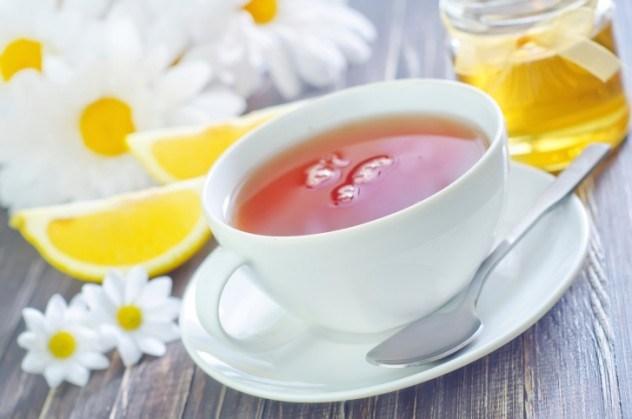
Every time people say that they drink tea, they actually drink something called broth. You see that the tea was tea, he must actually contain leaves of the plant Camellia Sinensis, otherwise known as the tea plant. Nevertheless, many of the compounds that can be found in the shops is simply a combination of herbs for all grades and for different purposes and does not contain tea leaves.
Even ancient people understood that many different herbs have wonderful healing properties, and most importantly in herbal infusions - to improve health. Chamomile, for example, can help you fall asleep, and ginger is often used to help people with indigestion. Since infusions do not include tea leaves, they are naturally caffeine free, so they can drink at any time of the day.
2. The Japanese tea ceremony.
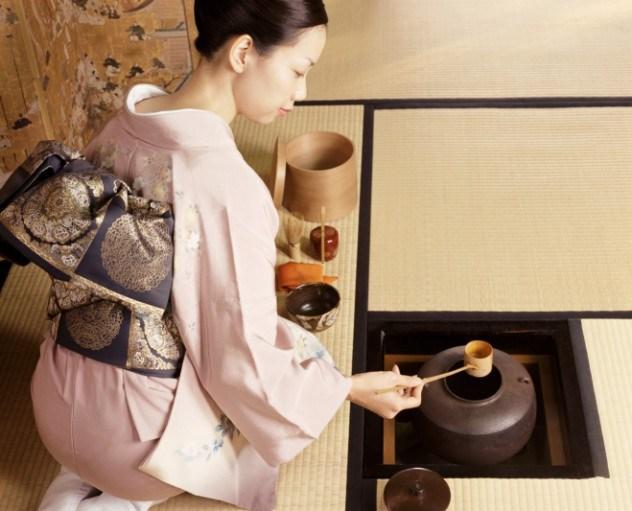
The tea ceremony is an important part of Japanese culture, and includes the use of a delicious powdered green tea known as Matcha. However, although it seems that during the ceremony all focuses on tea, it is still more than a social ritual than anything else. Initially, the tea ceremony began as an art form practiced by the elite of Japanese society as a way of communication and informality of its future status. Every action is focused on how the guest sees things.
Ceremony is usually carried out with four or five people at one time. In addition to green tea Matcha is usually served sweet snacks. The ceremony is considered very important in Japanese culture, and need a lot of time to achieve complete mastery.
3. decaffeinated tea.

Sometimes, when you want a cup of tea, in fact you do not want the caffeine, but all black and green teas contain caffeine around you. Many people will tell you that there is a simple solution - remove the caffeine alone. Some people say that it is very simple: you have to soak the tea for about 30 seconds, pour the water first and then brew. As it turns out, is not so simple. But still, caffeine can be removed from their own tea.
The researchers examined how long it takes to remove the caffeine from the tea bag. They found that the removal of 90% of the caffeine you need to brew tea good 10 minutes or so. Although this means that you have to wait longer than tea, but know a lot of teas brewed several times.
4. Soy lecithin
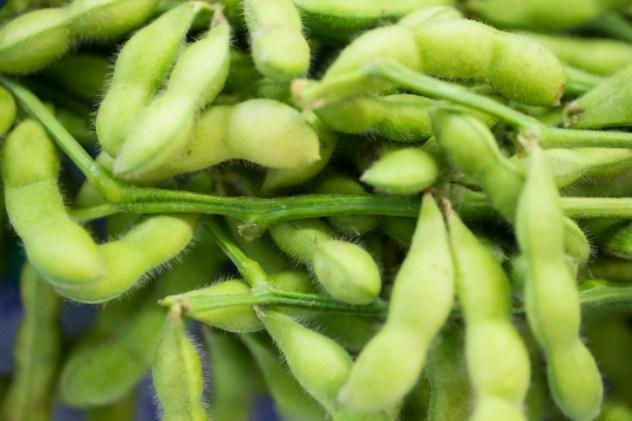
Celestial Seasonings - one of the most famous tea brands - recently came under a barrage of criticism over the use of soya lecithin in many of its products. Of course, the company claims that they use non-GMO soybeans, and only for a better mixing of the ingredients. This is problematic for those who are allergic to soy, but for the rest of us, is not really so bad.
By itself, lecithin has been studied in various studies, and although some of the results are not conclusive, it is believed that he actually have a positive impact on our health. In small studies, it was found that the lecithin is effective against ulcerative colitis. He has been suggested as a possible treatment for a variety of other problems. Although it is not sufficient studies have been conducted to confirm the usefulness of lecithin, many suggest using it to treat Alzheimer's disease, Parkinson's, and even bipolar disorder.
5. L-theanine

The caffeine in tea can be quite stimulating effect, but usually drink tea more enjoyable than drinking coffee. The reason for this is L-theanine, which has a very interesting effect on the brain.
All conducted multiple studies show that L-theanine has good effects on the brain. It is valued for its ability to induce meditative states: it helps you to relax, not asleep. It was found that L-theanine improves memory and makes you more interested in what's happening in your environment. It was also found that a substance capable of reducing anxiety and good for combating stress in general.
6. Tea masala

In the United States, have a drink taken from Indian culture, which we call tea latte - «chai». This drink is made by mixing black tea with spices such as cardamom, cinnamon, ginger, cloves, anise, black pepper and vanilla. The drink is usually served with milk, add honey, and it can be drunk hot or cold.
However, you can look ridiculous by ordering in most Asian countries, namely tea «chai». In India, Russia and many other places, "tea" really just means "tea". You would literally have ordered a simple tea. If you want to drink properly in India, you have to ask for tea masala (masala chai), which translates as "spicy tea».
7. Pickled tea
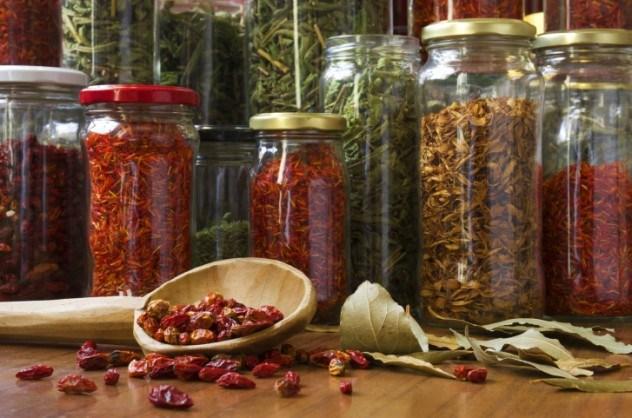
Most people think that this is the tea, drink what you drink, and in most parts of the world it is. However, in Burma tea enjoying quite differently. Burmese pickled tea drink, which they call lephet. To make lephet, it is necessary that the tea leaves are first softened and then it was allowed to cool, rolled and placed under the ground during.
Lephet considered a delicacy in Burma and are required on all important social events. Burmese usually served him on a tray, put in the center and surrounding it with several different garnishes. It may be shrimp, sesame seeds, garlic, peanuts, peas. While it may be the only Burmese culture, which attaches importance to tea as food, they also consume the drink it regularly.
8. Pollution tea

To make sure that nothing dangerous can not pick in tea leaves, studies have been conducted and the results are hardly encouraging. Investigation of various types of tea in Brazil have shown that green tea and black contain large amounts of aluminum and fluorine. And if about the content of aluminum with a high degree of confidence we can say that it is not dangerous, the amount of fluorine is actually quite high, which can lead to dental fluorosis, especially in children. Of course, you need to drink a huge amount of tea to get the disease, but still need to be careful.
These compounds fall within the tea through the soil and often found in the case of briquettes, which are often of poor quality. Some researchers believe that the aluminum content should be cause for concern, as it may contribute to Alzheimer's disease. Of course, it is important to look for solutions to minimize the amount of these compounds in tea.
9. Tasseography
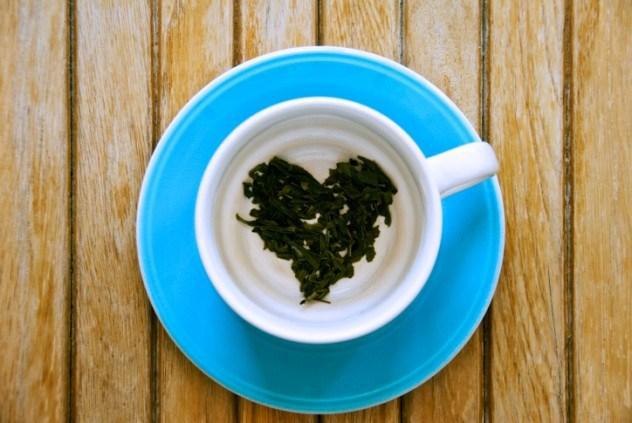
Tea can be a popular drink, but in many cultures have come up with other uses for this plant. One of the strangest forms of application of tea is Tasseography. (Divination). The roots of this kind of divination go back to ancient China, although it is likely that Roma was distributed than anyone else. Since the tools necessary for divination can hardly be considered suspicious, it's pretty popular form of divination in times.
To read the prediction, you need to prepare tea from tea leaves crumbly and give him to drink to whom guess. After the tea is finished, Gad, scrolls remaining brew three times counterclockwise, it is important to handle the cup was in front of him, because direction is important. And then begins the interpretation of what he saw in the cup.
10. The benefits of tea
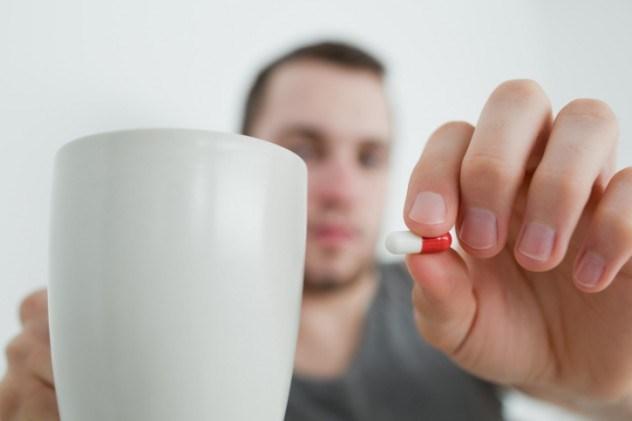
Tea was originally used for health, so it is no wonder that many studies have focused on the study of the possible effects of tea on health. Unfortunately, the results are constantly contradict each other.
One study, which tracked the health of thousands of people over 37 years found that those who drank large amounts of tea daily were more likely to develop prostate cancer. Nevertheless, other studies have shown almost exactly the opposite. A double-blind study using a control group for accuracy green tea catechins were tested on men who tend to have prostate cancer. The study showed that green tea catechins in fact have a positive effect on the sick. However, further studies on this subject have not found further development. Much more research to conduct, before we can truly understand the impact of tea on health.
1. Infusions.

Every time people say that they drink tea, they actually drink something called broth. You see that the tea was tea, he must actually contain leaves of the plant Camellia Sinensis, otherwise known as the tea plant. Nevertheless, many of the compounds that can be found in the shops is simply a combination of herbs for all grades and for different purposes and does not contain tea leaves.
Even ancient people understood that many different herbs have wonderful healing properties, and most importantly in herbal infusions - to improve health. Chamomile, for example, can help you fall asleep, and ginger is often used to help people with indigestion. Since infusions do not include tea leaves, they are naturally caffeine free, so they can drink at any time of the day.
2. The Japanese tea ceremony.

The tea ceremony is an important part of Japanese culture, and includes the use of a delicious powdered green tea known as Matcha. However, although it seems that during the ceremony all focuses on tea, it is still more than a social ritual than anything else. Initially, the tea ceremony began as an art form practiced by the elite of Japanese society as a way of communication and informality of its future status. Every action is focused on how the guest sees things.
Ceremony is usually carried out with four or five people at one time. In addition to green tea Matcha is usually served sweet snacks. The ceremony is considered very important in Japanese culture, and need a lot of time to achieve complete mastery.
3. decaffeinated tea.

Sometimes, when you want a cup of tea, in fact you do not want the caffeine, but all black and green teas contain caffeine around you. Many people will tell you that there is a simple solution - remove the caffeine alone. Some people say that it is very simple: you have to soak the tea for about 30 seconds, pour the water first and then brew. As it turns out, is not so simple. But still, caffeine can be removed from their own tea.
The researchers examined how long it takes to remove the caffeine from the tea bag. They found that the removal of 90% of the caffeine you need to brew tea good 10 minutes or so. Although this means that you have to wait longer than tea, but know a lot of teas brewed several times.
4. Soy lecithin

Celestial Seasonings - one of the most famous tea brands - recently came under a barrage of criticism over the use of soya lecithin in many of its products. Of course, the company claims that they use non-GMO soybeans, and only for a better mixing of the ingredients. This is problematic for those who are allergic to soy, but for the rest of us, is not really so bad.
By itself, lecithin has been studied in various studies, and although some of the results are not conclusive, it is believed that he actually have a positive impact on our health. In small studies, it was found that the lecithin is effective against ulcerative colitis. He has been suggested as a possible treatment for a variety of other problems. Although it is not sufficient studies have been conducted to confirm the usefulness of lecithin, many suggest using it to treat Alzheimer's disease, Parkinson's, and even bipolar disorder.
5. L-theanine

The caffeine in tea can be quite stimulating effect, but usually drink tea more enjoyable than drinking coffee. The reason for this is L-theanine, which has a very interesting effect on the brain.
All conducted multiple studies show that L-theanine has good effects on the brain. It is valued for its ability to induce meditative states: it helps you to relax, not asleep. It was found that L-theanine improves memory and makes you more interested in what's happening in your environment. It was also found that a substance capable of reducing anxiety and good for combating stress in general.
6. Tea masala

In the United States, have a drink taken from Indian culture, which we call tea latte - «chai». This drink is made by mixing black tea with spices such as cardamom, cinnamon, ginger, cloves, anise, black pepper and vanilla. The drink is usually served with milk, add honey, and it can be drunk hot or cold.
However, you can look ridiculous by ordering in most Asian countries, namely tea «chai». In India, Russia and many other places, "tea" really just means "tea". You would literally have ordered a simple tea. If you want to drink properly in India, you have to ask for tea masala (masala chai), which translates as "spicy tea».
7. Pickled tea

Most people think that this is the tea, drink what you drink, and in most parts of the world it is. However, in Burma tea enjoying quite differently. Burmese pickled tea drink, which they call lephet. To make lephet, it is necessary that the tea leaves are first softened and then it was allowed to cool, rolled and placed under the ground during.
Lephet considered a delicacy in Burma and are required on all important social events. Burmese usually served him on a tray, put in the center and surrounding it with several different garnishes. It may be shrimp, sesame seeds, garlic, peanuts, peas. While it may be the only Burmese culture, which attaches importance to tea as food, they also consume the drink it regularly.
8. Pollution tea

To make sure that nothing dangerous can not pick in tea leaves, studies have been conducted and the results are hardly encouraging. Investigation of various types of tea in Brazil have shown that green tea and black contain large amounts of aluminum and fluorine. And if about the content of aluminum with a high degree of confidence we can say that it is not dangerous, the amount of fluorine is actually quite high, which can lead to dental fluorosis, especially in children. Of course, you need to drink a huge amount of tea to get the disease, but still need to be careful.
These compounds fall within the tea through the soil and often found in the case of briquettes, which are often of poor quality. Some researchers believe that the aluminum content should be cause for concern, as it may contribute to Alzheimer's disease. Of course, it is important to look for solutions to minimize the amount of these compounds in tea.
9. Tasseography

Tea can be a popular drink, but in many cultures have come up with other uses for this plant. One of the strangest forms of application of tea is Tasseography. (Divination). The roots of this kind of divination go back to ancient China, although it is likely that Roma was distributed than anyone else. Since the tools necessary for divination can hardly be considered suspicious, it's pretty popular form of divination in times.
To read the prediction, you need to prepare tea from tea leaves crumbly and give him to drink to whom guess. After the tea is finished, Gad, scrolls remaining brew three times counterclockwise, it is important to handle the cup was in front of him, because direction is important. And then begins the interpretation of what he saw in the cup.
10. The benefits of tea

Tea was originally used for health, so it is no wonder that many studies have focused on the study of the possible effects of tea on health. Unfortunately, the results are constantly contradict each other.
One study, which tracked the health of thousands of people over 37 years found that those who drank large amounts of tea daily were more likely to develop prostate cancer. Nevertheless, other studies have shown almost exactly the opposite. A double-blind study using a control group for accuracy green tea catechins were tested on men who tend to have prostate cancer. The study showed that green tea catechins in fact have a positive effect on the sick. However, further studies on this subject have not found further development. Much more research to conduct, before we can truly understand the impact of tea on health.
